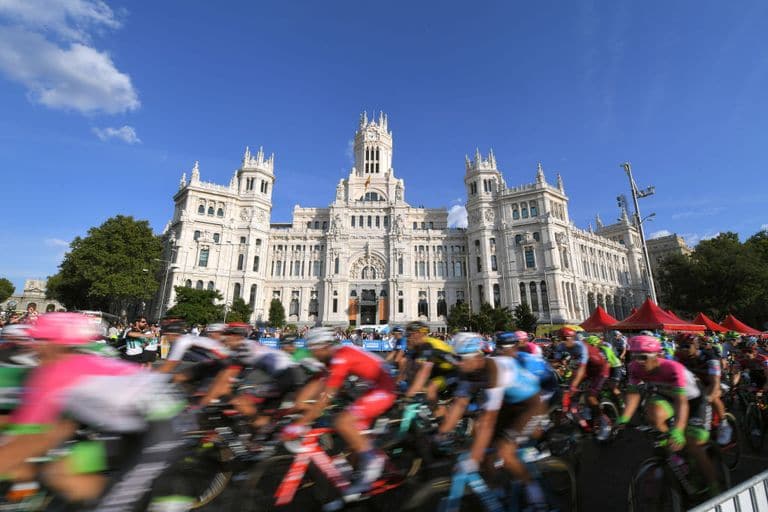All You Need To Know About The 2019 Vuelta a España!
Get ready for the final Grand Tour of the cycling season.
The 2019 Vuelta a España starts on Saturday, 24 August, in the province of Alicante, Spain. And despite the Tour de France ending less than a month ago, we couldn’t be more excited.
We love the Vuelta. As the last of cycling’s three Grand Tours on the calendar, it always serves as a final chance for riders hoping to end their seasons on a high note or make up for disappointing performances earlier in the year. It’s also a great way to prepare for the World Championships a few weeks later, so the start list is always filled with stage racers and one-day stars. Last but not least, it’s the season’s most mountainous Grand Tour. This year’s race has eight uphill finishes, including some of the toughest climbs on the Iberian peninsula.
Here’s everything you should know about the Spanish stage race, along with a rundown of top contenders for the maillot roja – the red jersey awarded to the Vuelta’s overall leader.
When
The 2019 Vuelta a España begins on Saturday, 24 August, and finishes on Sunday, 15 September.
Route
This year’s race takes place over 21 stages, plus two rest days, and covers 3,272.2km. It includes one team time trial, one individual time trial, and eight uphill finishes – five of which are new to the race. The course also allows at least six days for the sprinters.
Things kick off with a team time trial around the city of Torrevieja and its famous salt lakes, the first of three stages on the warm, sunny Costa Blanca. The peloton then heads north along the Mediterranean coast through Valencia, Teruel, Castellón, Tarragona, and ultimately Barcelona, with several uphill finishes that will begin to shape the General Classification. The first rest day comes after a short, mountainous stage in the small country of Andorra, where only the best climbers will challenge for the win.
The second week opens with a 36K individual time trial finishing in Pau, France (which hosted an ITT during the Tour de France). Then the race heads west across Spain’s northern coast, with a series of difficult stages ranging from punchy to incredibly mountainous. This is by far the hardest week of the Vuelta, and perhaps only two or three overall favourites will remain in contention by the end. Two hard mountain stages will ultimately decide the outcome during the final week, before the race ends with a flat stage in Madrid.

What Happened Last Year
After losing the 2018 Giro d’Italia despite leading the race for 13 stages, Simon Yates came through at the Vuelta, taking the first Grand Tour victory of his career (and the first in his Mitchelton–Scott team’s history). After wearing the red jersey briefly during the second week, Yates seized it for good after winning Stage 14. His advantage was narrow at first, but his second- and third-place finishes on stages 19 and 20 sealed the deal for the then-26-year-old, who was clearly the strongest and most consistent rider over the mountainous three weeks.
Riders to Watch
Yates, who won two stages at the Tour de France, recently announced that he won’t return to the Vuelta to defend his title this year. Mitchelton–Scott will instead ride for Esteban Chavez, a Colombian climber who finished third at the race in 2016 and could prove to be the team’s strongest rider in Yates’s absence.
Other contenders include Jumbo–Visma’s Steven Kruijswijk, who finished third at the Tour last month, and EF Education First’s Rigoberto Urán, who placed seventh but seemed to end in France with a little bit left in his tank.
Keep an eye on Dimension Data’s Mark Cavendish, expected to ride his first Grand Tour since his DNF in last year’s Tour de France, as well as UAE’s Tadej Pogačar, who won the Tour of California and is considered one of the biggest young talents in the sport.
We also expect five Americans to start: EF Education First’s Lawson Craddock and Tejay van Garderen, Jumbo–Visma’s Sepp Kuss and Neilson Powless, and Dimension Data’s Ben King, who won two stages in last year’s edition.
READ MORE ON: news races Vuelta a España

